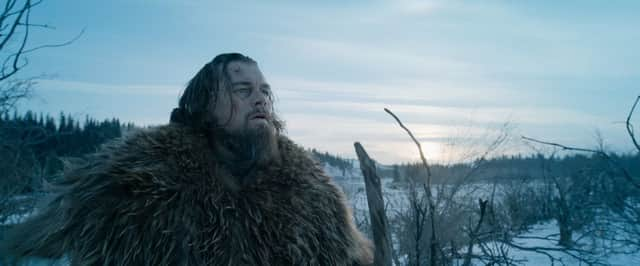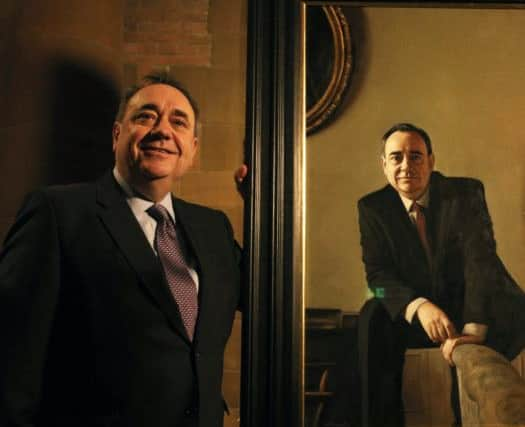Hannah McGill: sexist dinosaur attitude deserves a goring


They’d be put off, he thought, by the film’s relentless bloody violence. It’s not the first time Wells has been called out for being weird about women, although more commonly he’s complaining about their looks: he thought Jennifer Lawrence “too big” in The Hunger Games, deemed Amy Schumer too unattractive to play a romantic lead in Trainwreck, and undoubtedly broke Uma Thurman’s heart recently when he declared that changes in her looks have rendered him “no longer interested”. Male performers do not escape Wells’ fastidious eye: he has expressed at disturbing length his negative feelings about Jason Segel’s bottom, and once likened Vince Vaughan to “a flatulent wildebeest”.
It’s weird, all this appearance fascism, because I’ve met Wells a few times, and though he was never ungentlemanly to me in the slightest, he has the most insanely ultra-fake dye job this side of Sir Paul McCartney. I mean, it’s distractingly bad. Anyway, “Forget women seeing this,” he said. Cue derision, a lot of people pointing out that childbirth and periods can get quite messy, and Wells feeling, he said, like “a wildebeest being surrounded and torn apart by hyenas.”
Advertisement
Hide AdAdvertisement
Hide AdNow, the man clearly has old-fashioned attitudes and a foot-in-mouth problem, as well as a peculiar preoccupation with wildebeests. And it’s not my experience that squeamishness about movie violence is a girl thing: the distinguished film critic I know who walks out at the first sign of blood is a man, while some of the most impassioned gore fans I’ve met (including Adele Hartley, the director of Edinburgh’s beloved horror film festival Dead By Dawn) are female. Still, the idea that we watch and make films not just as people, but as males and females with correspondingly different values and attitudes, isn’t confined to sexist dinosaurs: feminists say it quite a lot too. While Wells was being wildebeested, the actress Rose McGowan was gaining plaudits for critiquing Hollywood’s “lazy and average male filmmaking” and claiming that “it brings such instant depth to make a character female”.


“The greater the participation of women,” one US survey found, “the more thought-provoking but less violent and fear-inducing is the resulting cinematic product”. “Women tell stories differently,” Melissa Silverstein, of Women and Hollywood, has said. So, as crudely as he put it, was it really so sexist of Wells to suggest that enthusiasm for punishing violence might have something to do with gender? Maybe not. I do find one aspect of his comment bluntly sexist, though: the assumption that his reader is male, that cultural discourse happens between men, and that “women” are some sort of distant, faintly mysterious other species. That sort of attitude is far more insidious, and more damaging, than any of the shaky broad-stroke assertions about male and female behaviour that most of us make in private every day.
Poor PR and vanity portraiture
Considering how much we hear about political spin, it’s pretty amazing how often statespeople play directly into the hands of their detractors. You know: people think you’re secretive, so you use a private email address whilst in public office and act shady about providing access to it? You have a reputation as dangerously unreconstructed old Commie, so you bring THE ACTUAL LITTLE RED BOOK into work and THROW IT AT SOMEONE? Or, people think you’re a bit vain and self-involved… so you miss a key debate in order to have a good look at a big shiny portrait of yourself in which you’re a bit thinner and have more hair. Bad, very bad. Not Gerard Burns’ portrait of Alex Salmond, but the PR. There’s a reason that artists are drawn to painting political figures, and it’s not necessarily fawning patronage: it has to do with the effort to capture the humanity of someone perpetually performing, and the power of inducing a stupendously driven individual to stand still awhile. The results are often interesting. Still, Salmond should have had a sense of how this particular bout of looking at himself was going to look.
Hazelnut spread terror
JK ROWLING has revealed to those ever-curious fans of hers that Harry Potter named his child after nasty Severus Snape out of “forgiveness and gratitude”. Well, naming a baby after someone you never liked much at least removes the possibility that you might fall out with the original holder of the name. Anyone who has named a child knows the fear that the name might acquire meanings beyond your control. It must be rotten if you happen to be called Katie Hopkins… and then there’s the five-year-old who was just denied a personalised Nutella label because her name is Isis. «